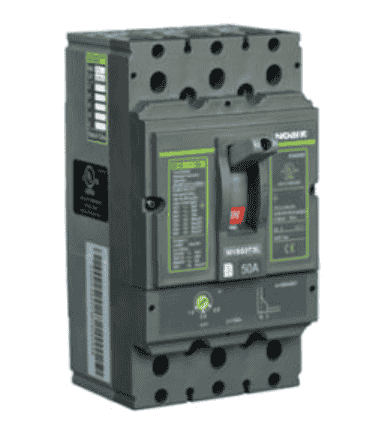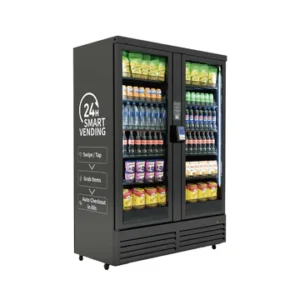Working in facilities maintenance teaches you hard lessons fast. The electrical wholesale industry operates differently than retail. You can’t just walk into a store and grab what you need. Finding reliable electrical equipment suppliers takes time and research. I spent three years learning which suppliers actually deliver. Some promise everything. Others actually follow through. This review shares what I discovered navigating this complex industry.
Electrical Distribution & Control is a family-owned supplier serving both local and nationwide markets. They specialize in hard-to-find electrical distribution and motor control products. The company recycles, reconditions, and sells new electrical equipment for commercial and residential sectors.
How I Got Started in This Industry
My first maintenance job threw me into deep water. The building had equipment from multiple decades. Parts failed constantly. I knew nothing about sourcing electrical components.
My boss handed me a parts list. He said “figure it out.” No training. No supplier contacts. Just a list of cryptic part numbers. Welcome to facilities management.
I started calling every supplier I could find online. Most conversations went nowhere. They didn’t stock what I needed. Or they quoted ridiculous prices. Or they couldn’t confirm compatibility.
Three weeks passed trying to source one motor starter. Production equipment sat idle the whole time. Management wasn’t happy. I wasn’t happy. Something had to change.
That experience forced me to understand how this industry really works. You can’t rely on one supplier. You need a network. Different suppliers serve different needs. Learning who does what takes time.
Understanding How Wholesale Differs from Retail
Retail electrical stores stock common items. Light fixtures, outlets, basic circuit breakers. Standard stuff homeowners need. Limited inventory but convenient hours.
Wholesale operates completely differently. Larger quantities. Specialized items. Trade accounts required usually. Not always open to public. Different pricing structures entirely.
The electrical wholesale industry serves contractors and businesses primarily. They move bulk orders. They stock industrial-grade equipment. They handle commercial specifications. Residential stuff is secondary for them.
Minimum orders often apply. You can’t buy just one item sometimes. This makes sense for their business model. But it complicates small emergency purchases.
Lead times vary dramatically. Common items ship next day. Specialized equipment might take weeks. Obsolete parts could be months. Planning ahead becomes crucial.
Relationships matter more in wholesale. Retail treats everyone the same. Wholesale rewards loyal customers. Better pricing. Priority service. Inside knowledge. These perks come with time.
What Makes a Good Electrical Equipment Supplier
Inventory depth separates great suppliers from average ones. Anyone can stock current popular items. Finding discontinued parts tests a supplier’s real capabilities.
Technical knowledge matters enormously. Staff should understand what they’re selling. Not just read specs from a screen. Real troubleshooting knowledge helps customers.
Response time during emergencies shows true character. Anyone answers phones during business hours. Great suppliers respond when you’re desperate. At night. On weekends. When it matters most.
Pricing transparency builds trust quickly. Hidden fees destroy relationships. You need to know total costs upfront. No surprises at checkout. Clear quotes prevent misunderstandings.
Quality control on reconditioned parts is essential. Testing procedures should be thorough. Guarantees should back up claims. You’re trusting their reconditioning process. That trust needs solid foundation.
Nationwide reach helps but isn’t everything. Local suppliers offer faster service. But sometimes you need parts from across the country. Flexibility matters more than location alone.
My Experience with Different Supplier Types
Big national distributors have massive catalogs. They stock thousands of items. Their systems are slick and modern. Online ordering works smoothly. But finding obsolete parts is impossible.
They focus on current products. Discontinued items get dropped from inventory fast. Their computerized systems can’t handle non-standard requests. You need what their catalog lists. Nothing more.
Pricing from big suppliers runs high. They have overhead. Multiple locations. Corporate structure. All that costs money. You pay for their convenience and selection.
Customer service feels transactional. You’re one of thousands. Nobody remembers your name. Each call starts from scratch. Efficiency but not relationship.
Specialty suppliers operate differently. They focus on specific niches. Motor controls. Circuit protection. Lighting systems. Whatever their specialty is. Deep knowledge in narrow areas.
These specialists solve complex problems. They understand applications intimately. Can recommend alternatives that work. Actually engineer solutions sometimes. But limited to their focus area.
Small independent suppliers surprised me most. Lower overhead means better prices. Personal service creates relationships. Flexibility in how they operate. Willing to hunt for unusual items.
The downside is limited inventory. They can’t compete with big guys on common items. But for obscure needs, they often outperform everyone else. Finding these independents takes networking.
How I Found Electrical Distribution & Control
A contractor friend mentioned this San Bernardino operation. He said they found him obsolete contactors. Nobody else could help. I filed that information away.
Months later, I needed a discontinued panel board. Twenty years old. Original manufacturer gone. Standard suppliers had nothing. I remembered my friend’s recommendation.
I called expecting another dead end. The person who answered actually knew what I was talking about. Asked intelligent questions about the application. Checked their inventory while we talked.
They had a compatible unit. Not exact model but functionally identical. Explained the differences clearly. I understood what I’d be getting. Price was reasonable for reconditioned equipment.
That first success started a working relationship. I’ve ordered dozens of times since then. They’ve solved problems others couldn’t. Become my go-to for difficult sourcing challenges.
What Sets Them Apart in the Wholesale Market
Their focus on hard-to-find items fills a real gap. Most suppliers avoid obsolete inventory. Too much hassle. Not profitable enough. But facilities with old equipment need these parts desperately.
The recycling and reconditioning program makes economic sense. Perfectly good equipment gets discarded constantly. Reconditioning extends useful life. Saves customers money. Reduces waste too.
Emergency after-hours service shows commitment. They answer calls outside business hours. Help locate parts during crises. Even offer on-site assistance if needed. This flexibility prevents costly downtime.
Serving both local and nationwide markets provides coverage. You don’t need to be in California. They ship anywhere. But local customers get added convenience of pickup.
Family ownership shows in their approach. They’re building long-term relationships. Not chasing quarterly numbers. Decision-making happens fast. No corporate bureaucracy slowing things down.
Staff actually knows their inventory. They can picture where parts sit. Suggest alternatives based on experience. This institutional knowledge can’t be replicated by computers alone.
Real Situations Where They Helped
An ancient elevator motor failed at midnight. Building residents trapped on floors. Emergency situation with liability concerns. Called their after-hours number within minutes.
They had a compatible motor. Met me at their shop at 1 AM. Got residents moving again by 3 AM. That response prevented potential lawsuit. Worth far more than the motor cost.
A panel board needed specific vintage breakers. Code compliance issue from inspection. Had 48 hours to fix it. They located eight breakers from different sources. Delivered everything needed in time.
Industrial client needed discontinued motor starters. Equipment from 1990s still running. Original parts impossible to find anywhere. Took them three days to source alternatives. Project stayed on schedule.
HVAC control board failed during summer heat. Manufacturer stopped making that model. Quoted $8,000 for system upgrade. They found reconditioned board for $600. Same functionality at fraction of cost.
Each scenario could have caused major problems. Equipment downtime costs money. Code violations risk fines. Unhappy clients damage reputation. Having reliable suppliers prevents these disasters.
Understanding the Value of Reconditioned Equipment
New parts aren’t always better. Manufacturing quality varies widely now. Cheap imports often fail fast. Older equipment was built to last. Reconditioned versions tap into that quality.
The testing process matters more than age. Proper reconditioning includes inspection and repair. Load testing verifies functionality. Good reconditioning produces reliable parts. Poor reconditioning creates problems.
Warranties on reconditioned parts prove confidence. If supplier guarantees their work, trust that. They wouldn’t warranty junk. Their reputation depends on satisfied customers.
Cost savings make budgets work better. Paying half price for equal functionality is smart business. Accountants appreciate these numbers. As long as reliability matches.
Environmental benefits matter too. Keeping equipment out of landfills helps. Reusing functional components makes sense. Sustainability isn’t just marketing talk. It’s practical resource management.
Some people hesitate with reconditioned items. I understand that concern. But decades of experience show these parts often outlast new cheap alternatives. Quality reconditioning beats poor manufacturing every time.
Comparing Wholesale Pricing Structures
Standard wholesale pricing uses percentage markups. Based on manufacturer list prices. Discount levels depend on volume. The more you buy, the better your pricing.
Contract pricing locks in rates. Usually annual agreements. Guarantees pricing and availability. Good for predictable needs. Less flexibility for one-off purchases.
Project pricing works for large jobs. Special quotes on bulk orders. Competitive bidding situations. Margins get thin here. But volume makes it worthwhile.
Emergency pricing costs more everywhere. After-hours service commands premium. Rush shipping adds fees. This makes sense given the extra effort required.
Reconditioned pricing sits between new and used. More than scrap value. Less than new retail. Fair compensation for testing and warranty. Reflects actual condition and functionality.
The electrical wholesale industry pricing can be opaque. Building relationships improves transparency. Loyal customers get better insight. And often better pricing too.
What Could Improve in the Industry
Digital systems lag behind other industries. Many suppliers still use outdated software. Inventory visibility suffers. Real-time availability is rare. Technology upgrades would help tremendously.
Online ordering isn’t universal. Some suppliers require phone calls for everything. This feels inefficient for routine purchases. Though personal service has value too.
Lead time communication needs work. Estimated arrivals change without notice. Updates require calling to ask. Proactive communication would reduce frustration significantly.
Parts compatibility information varies wildly. Some suppliers provide detailed specs. Others give bare minimum. Better technical documentation would prevent ordering mistakes.
Return policies can be restrictive. Restocking fees get expensive. Wrong part situations become costly. More flexible returns would reduce ordering risk.
Standardization across the industry would help. Part numbering systems differ by manufacturer. Cross-referencing becomes complicated. Universal standards would simplify everything.
Lessons Learned Working with Suppliers
Build relationships before emergencies happen. Don’t wait until you’re desperate. Make introductory calls. Order small items occasionally. Establish rapport early.
Maintain accounts with multiple suppliers. No single source handles everything. Different specialists for different needs. Backup options prevent single points of failure.
Communicate clearly about requirements. Don’t assume suppliers understand your application. Explain what you’re trying to accomplish. Better communication prevents wrong orders.
Ask about alternatives when exact matches aren’t available. Suppliers often know compatible substitutes. Their experience guides good alternatives. But you have to ask.
Document successful purchases. Keep notes on part numbers and suppliers. Future orders go faster. Reduces duplicate research. Creates institutional knowledge.
Pay invoices promptly. Good payment history earns better service. Suppliers remember reliable customers. Priority handling during emergencies. Your reputation matters.
The Role of After-Hours Emergency Service
Equipment doesn’t break during business hours only. Emergencies happen nights and weekends. Standard suppliers close by 5 PM. Where do you turn?
True emergency service costs more. This is fair given the inconvenience. But having access prevents catastrophic downtime. The premium pays for itself fast.
Electrical Distribution & Control offers after-hours assistance. Real people answer the emergency number. They check inventory immediately. Can meet you at the shop if needed. This availability has saved me repeatedly.
Not all suppliers advertise emergency service. Many can’t provide it. Family-owned operations have more flexibility. Corporate policies restrict after-hours access.
Testing emergency numbers before you need them is smart. Make a non-urgent call sometime. Verify they actually answer. Know what to expect during real emergencies.
Who Benefits Most from Specialized Suppliers
Facilities managers with old buildings need these resources. Historic properties have unique requirements. Modern suppliers can’t help. Specialists understand vintage systems.
Industrial operations running legacy equipment benefit enormously. Upgrading entire systems costs millions. Keeping old equipment running makes sense. Finding parts enables this strategy.
Maintenance contractors serving diverse clients need broad resources. Every job site is different. Having suppliers for unusual situations helps. Completes jobs that others can’t.
Electrical contractors doing renovation work face surprises constantly. Old buildings hide problems. Having sources for obsolete parts prevents delays. Projects finish on time more consistently.
Property management companies overseeing multiple buildings appreciate one-stop sourcing. Different buildings, different equipment, different ages. Suppliers with deep inventory simplify coordination.
Final Assessment and Recommendations
The electrical wholesale industry serves essential functions. Without these suppliers, facilities couldn’t operate. Old equipment would become unrepairable. Costs would skyrocket replacing everything.
Finding good suppliers takes effort initially. But relationships pay dividends over time. Better pricing. Priority service. Inside knowledge. These benefits compound.
Electrical equipment suppliers come in many types. Big nationals. Small specialists. Regional independents. Each serves different needs. Understanding who does what helps tremendously.
Companies like Electrical Distribution & Control fill important niches. Their focus on hard-to-find items serves real needs. The reconditioning program provides value. Emergency service prevents disasters.
For anyone managing facilities or equipment, build your supplier network now. Don’t wait for emergencies. Research options in your area. Establish accounts before you’re desperate.
Visit https://edc-electrical.com/ to see one example of specialized suppliers. Read their capabilities. Understand their approach. Even if you don’t need them today, knowing they exist helps.
The industry isn’t perfect. Technology lags. Communication could improve. But good suppliers provide invaluable services. Finding reliable partners makes your job easier. Less stress. Fewer emergencies. Better outcomes.
My three years navigating this world taught valuable lessons. Relationships matter more than prices alone. Knowledge beats catalog size sometimes. Flexibility prevents disasters. Emergency support is worth premiums.
Would I recommend investing time to find good suppliers? Absolutely. Your facilities depend on reliable equipment. That equipment needs parts eventually. Having trusted sources prevents crises. That peace of mind is priceless.





More Stories
How Can Marriage Intensives in Colorado Transform Your Relationship?
What Makes an Artisan Gift Set the Perfect Choice? A Friendly Guide to Thoughtful Gifting
What Is a Crawl Space Vapor Barrier? How Can It Help Your Home in Fort Morgan CO?